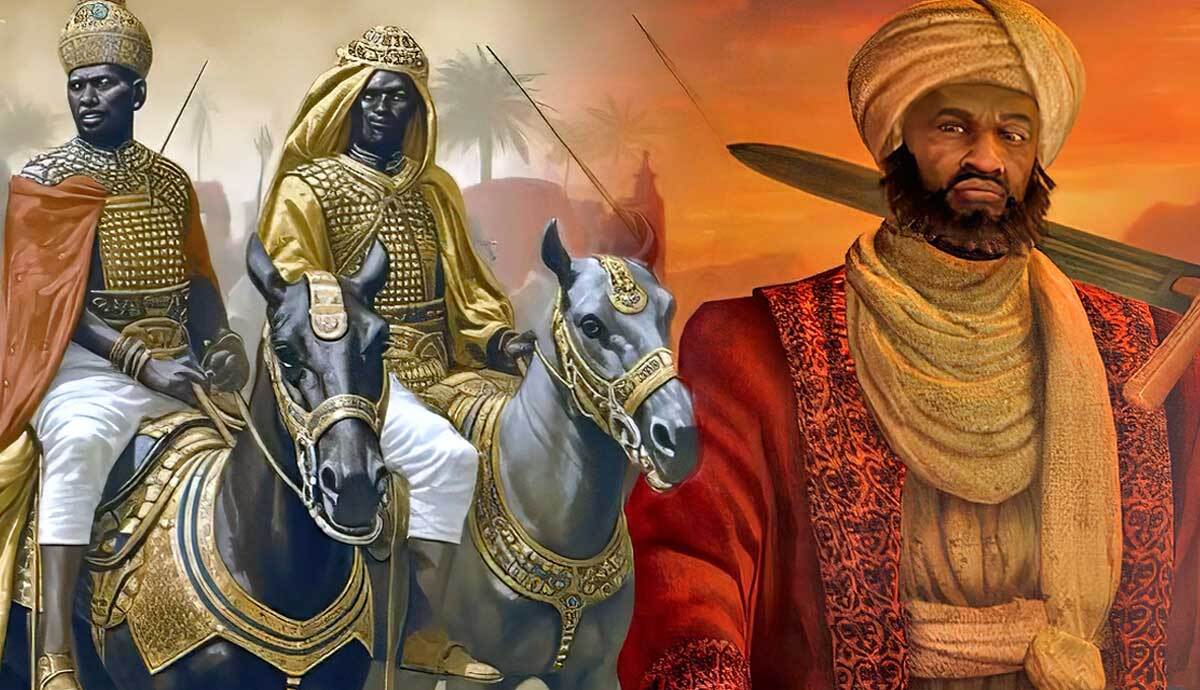
Empires of Africa have a rich and diverse history that often gets overshadowed by other world events. Did you know that Africa was home to some of the most powerful and advanced civilizations in history? From the wealth of the Mali Empire to the architectural wonders of Great Zimbabwe, these empires were centers of trade, culture, and innovation. Ancient African empires like Egypt, Carthage, and Nubia contributed significantly to human progress. They had complex societies, impressive achievements in art, science, and governance. This blog post will take you on a journey through 32 fascinating facts about these incredible empires, shedding light on their contributions and legacies.
Key Takeaways:
- Ancient African empires like Egypt, Mali, and Benin were wealthy, powerful, and influential, shaping the continent's history and leaving behind rich legacies of culture, trade, and military prowess.
- Despite their eventual decline, the influence of these empires continues to shape modern African nations, preserving their traditions, languages, and cultural heritage for future generations to rediscover and celebrate.
Ancient African Empires
Africa's history is rich with powerful empires that shaped the continent and influenced the world. These empires were centers of trade, culture, and innovation.
- The Egyptian Empire is one of the oldest and most iconic civilizations, known for its pyramids, pharaohs, and hieroglyphics.
- The Kingdom of Kush was a powerful Nubian state that conquered Egypt and ruled as pharaohs during the 25th Dynasty.
- The Carthaginian Empire in North Africa was a major trading hub and rival to Rome, famous for its general Hannibal.
- The Aksumite Empire in present-day Ethiopia was a major trading empire known for its monumental obelisks and early adoption of Christianity.
- The Ghana Empire was the first of the great medieval trading empires of West Africa, known for its wealth in gold.
Trade and Wealth
Trade routes crisscrossed Africa, bringing wealth and cultural exchange to its empires. These routes connected Africa to Europe, Asia, and beyond.
- The Mali Empire was renowned for its immense wealth, particularly under the rule of Mansa Musa, who is often considered the richest person in history.
- The Songhai Empire succeeded Mali and controlled trans-Saharan trade routes, becoming one of the largest empires in African history.
- The Great Zimbabwe was a medieval city known for its impressive stone structures and as a center of trade in gold and ivory.
- The Swahili Coast was a network of city-states along the East African coast that traded with Persia, India, and China.
- The Kanem-Bornu Empire controlled trade routes across the Sahara and was known for its cavalry and military prowess.
Cultural Achievements
African empires were not only wealthy but also centers of learning, art, and culture. They made significant contributions to human civilization.
- The Timbuktu in the Mali Empire was a major center of learning, home to the famous University of Sankore and thousands of manuscripts.
- The Benin Empire in present-day Nigeria was known for its advanced art, particularly bronze sculptures and plaques.
- The Oyo Empire was a Yoruba state that developed a sophisticated political system and impressive military organization.
- The Kingdom of Kongo in Central Africa had a complex social structure and was an early adopter of Christianity.
- The Mutapa Empire in Southern Africa was known for its mining and trade in gold and other minerals.
Military Prowess
African empires were also known for their military strength and strategic prowess. They defended their territories and expanded their influence through warfare.
- The Zulu Kingdom under Shaka Zulu revolutionized warfare with new tactics and weapons, creating a powerful and centralized state.
- The Ashanti Empire in present-day Ghana was known for its fierce warriors and resistance against British colonization.
- The Dahomey Kingdom had an elite female military regiment known as the Dahomey Amazons, who were feared warriors.
- The Ethiopian Empire successfully resisted colonization by defeating the Italians at the Battle of Adwa in 1896.
- The Nri Kingdom in present-day Nigeria was known for its non-violent expansion and influence through diplomacy and religion.
Decline and Legacy
Despite their power and influence, many African empires eventually declined due to various factors, including colonization, internal strife, and changing trade routes.
- The Ghana Empire fell due to attacks from the Almoravids and internal rebellions.
- The Mali Empire declined after the death of Mansa Musa and internal conflicts weakened its control.
- The Songhai Empire was defeated by Moroccan forces equipped with firearms, leading to its collapse.
- The Great Zimbabwe was abandoned, possibly due to environmental factors and shifting trade routes.
- The Benin Empire was eventually conquered by the British in 1897, leading to the looting of its art treasures.
Modern Influence
The legacy of these empires continues to influence modern African nations and their cultures. They left behind rich histories and traditions that are still celebrated today.
- The Ethiopian Empire is the only African nation that was never colonized, maintaining its independence and cultural heritage.
- The Zulu Kingdom remains a significant cultural and political force in South Africa.
- The Ashanti Kingdom still exists as a traditional state within Ghana, preserving its customs and leadership.
- The Swahili Coast influenced the Swahili language, which is widely spoken in East Africa today.
- The Kingdom of Kongo's influence can be seen in the cultural practices and languages of Central Africa.
Rediscovery and Preservation
Efforts are ongoing to rediscover and preserve the history and artifacts of these ancient empires. Archaeologists and historians work to uncover the stories of Africa's past.
- The Timbuktu manuscripts are being preserved and digitized to protect them from damage and loss.
- The Great Zimbabwe ruins are a UNESCO World Heritage site, attracting researchers and tourists interested in African history.
The Legacy of African Empires
African empires left a lasting mark on history. From the wealth of Mali to the architectural wonders of Great Zimbabwe, these civilizations showcased incredible achievements. They were centers of trade, culture, and innovation, influencing regions far beyond their borders.
Understanding the history of African empires helps us appreciate the continent's rich heritage. It also challenges outdated stereotypes and highlights the contributions of African societies to global development. These empires were not isolated; they were integral parts of a connected world.
By learning about African empires, we gain a deeper respect for the diversity and complexity of human history. Their stories remind us of the resilience and ingenuity of people across time. So next time you think about history, remember the powerful legacies of Africa's great empires. They are a testament to the continent's enduring influence and significance.
Frequently Asked Questions
Was this page helpful?
Our commitment to delivering trustworthy and engaging content is at the heart of what we do. Each fact on our site is contributed by real users like you, bringing a wealth of diverse insights and information. To ensure the highest standards of accuracy and reliability, our dedicated editors meticulously review each submission. This process guarantees that the facts we share are not only fascinating but also credible. Trust in our commitment to quality and authenticity as you explore and learn with us.


